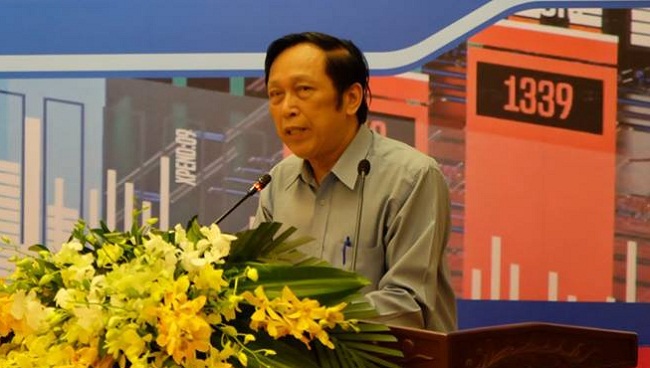Samsung Vietnam appoints its first Vietnamese senior executive
Samsung Vietnam appoints Nguyen Hoang Giang to SEVT senior leadership, the first Vietnamese executive in the company’s local manufacturing units.




According to experts, a lack of access to capital limits firm’s interest in investing in green technology and sustainable development.

According to Le Quoc Ly, Deputy Director of the Ho Chi Minh National Academy of Politics and Public Administration, the current economic growth model is in urgent need of reform. At a workshop on "green growth towards sustainable development - opportunities and challenges for enterprises" held in Hanoi on November 8, he outlined the case for “green growth” based on the application of advanced technologies and efficient use of natural resources.
However, Pham Hoang Mai, Director General of The Department for Science, Education, Natural Resources and Environment, expressed concern about the lack of any budget for the implementation of the 2030 Agenda for Sustainable Development. Meanwhile, he said that the resources for the implementation of national target programs for the 2016-2020 period were in one way or another related to the objectives of the 2030 Agenda.
Lately, MPI has also developed a guideline on public investment priority for ministries, agencies, and localities to allocate budget for green growth-related projects. However, these guidelines are not mandatory.
Nguyen Van Nam, Director of the Institute for Brand and Competition Strategy, also indicated that various sustainable development projects including build–operate–transfer (BOT) transport and coal power projects, face financial obstacles.

"It is possible for a business to take over BOT projects without capital thanks to the social capital from credit banks. In the past, banks were willing to invest millions of dong in BOT projects; therefore, there is no reason for them not to invest in sustainable businesses. The State should offer policies and mechanisms to require banks to provide credit loans for these projects," said Nguyen Van Nam.
Nam said that Vietnam’s resources should be concentrated on priority industries which would become a basis for other sectors to develop. In particular, green capital should be focused on environment-related sectors such as agriculture, forestry, and especially hydropower.
Experts said that currently, the majority of Vietnamese enterprises are still micro and small enterprises. For those firms, investing in green technologies is often not compatible with the profit motive.
Lack of awareness about green investment policies is also a problem. According to a survey of Ho Chi Minh City Polytechnic University released at the end of 2016, up to 70 percent of businesses had not known about Vietnam green label certification, more than half of enterprises did not care about climate change, and 60 businesses were not willing to invest in green products.
Also, incentives to support enterprises in approaching the trend of green growth towards sustainable development are still limited.
Nam said that changing awareness, especially of national leaders and policymakers, is critical. Vietnam should take more practical and drastic actions instead of just offering resolutions to support businesses in green growth towards sustainable development.
Samsung Vietnam appoints Nguyen Hoang Giang to SEVT senior leadership, the first Vietnamese executive in the company’s local manufacturing units.
Michelin is undergoing a strong transformation by applying AI and smart analytic, helping lead the smart, safe, and sustainable mobility revolution in the Industry 4.0 era.
LG Innotek Vietnam Hai Phong secured a $200 million IFC loan as revenue slows, aiming to expand camera module production while meeting sustainability targets.
For Koen Soenens, Sales and Marketing Director at DEEP C, empathy is a compass that guides major deals, the way a leader builds a team, and the ambition to create a sustainable industrial zone that carries a Vietnamese identity.
Taseco Land has shifted its listing to HOSE and introduced a new upward-pointing arrow logo - a visual statement of its strategy to raise capital, expand its land bank, and strengthen its standing in Vietnam’s real estate sector
Located in the heart of Ho Chi Minh City, SAP Labs Vietnam is the second SAP Labs Network hub in Southeast Asia, following Singapore and is one of 20 countries that have SAP Labs globally.